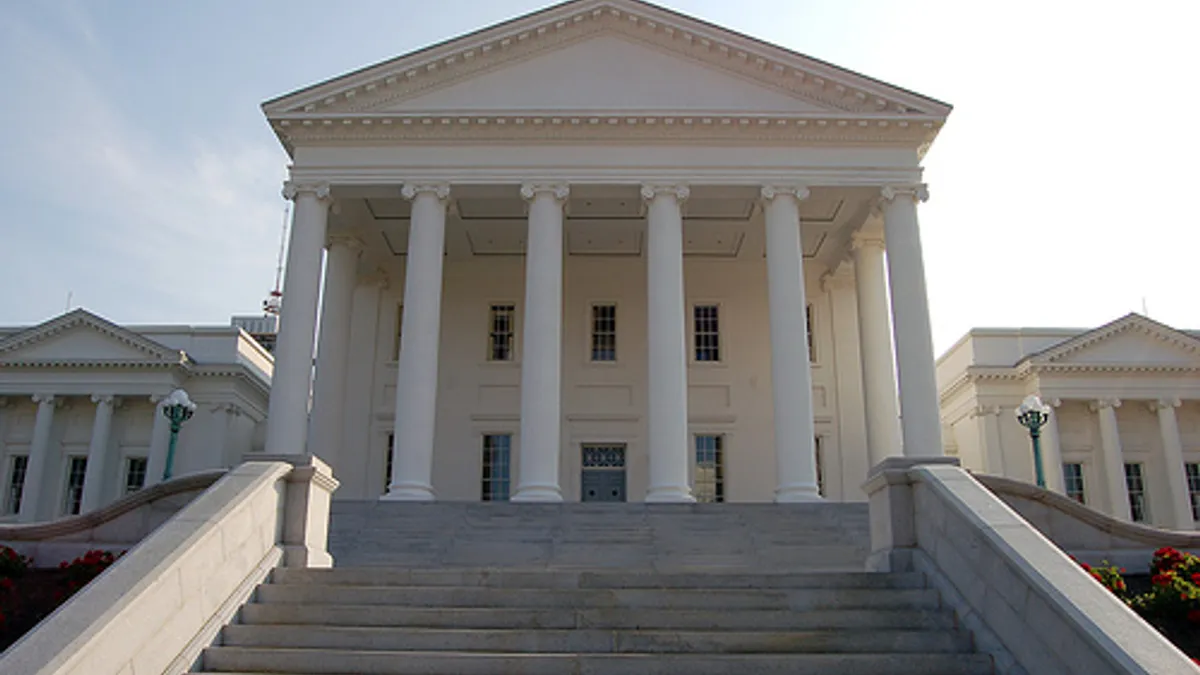Dive Brief:
-
Virginia Gov. Terry McAuliffe (D) has issued an executive order aimed at finding a way of cutting carbon dioxide pollution in the state that does not require approval from the state’s Republican-controlled General Assembly.
-
Executive Order 57 directs Virginia Secretary of Natural Resources Molly Ward to convene a working group and recommend steps to reduce CO2 emissions from power plants in the state by next May.
-
Republican leaders in the General Assembly criticized McAuliffe’s order as executive overreach. In its budget earlier this year, the assembly barred the Department of Environmental Quality from spending any funds to prepare for implementation of the Obama Administration’s Clean Power Plan (CPP), which has been put on hold by the Supreme Court.
Dive Insight:
The Supreme Court’s stay on the CPP has not quelled the controversy surrounding the Environmental Protection Agency’s (EPA) rules aimed at stemming the growth of greenhouse gas (GHG) emissions.
Nineteen states have suspended compliance planning for the rules and eight more are reassessing it. The EPA, meanwhile, is moving ahead with its Clean Energy Incentive Program that allows states that make early investments in renewables and efficiency for low-income communities to receive extra credit toward their emissions goals under the plan.
Virginia now joins the ranks of states like Arizona, Colorado, Connecticut, Delaware, Iowa, Massachusetts and Pennsylvania that are looking for ways to reduce GHGs despite the hold on the CPP. In all, 20 states have continued compliance planning. Four are exempt.
“Increasing Virginia’s emphasis on clean energy generation will help grow Virginia’s economy by reducing carbon emissions, ensuring our Commonwealth’s long-term energy security and creating the next generation of good jobs in this emerging sector,” McAuliffe said in a statement.
Virginia’s electric power industry has already made improvements in reducing emissions. Between 2005 and 2014, carbon emissions from power plants in Virginia fell 21%. The sector now accounts for about 30% of the state’s carbon emissions.
McAuliffe’s efforts to wrest more gains via an executive order, however, are likely to face stiff opposition.
In March, the governor vetoed a measure to give state legislators final say over a Clean Power Plan implementation strategy. The law would have prohibited the Virginia Department of Environmental Quality from submitting a CPP compliance plan without approval of a majority of legislators in both the Senate and the House of Delegates.













